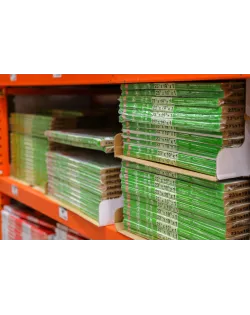When is the last time you changed your furnace filter? Here are your 5 best options…
You do know you are supposed to
change your furnace filter don't you?
Let me back up a step. You do
know your furnace has a filter that needs regular maintenance, right?
Sigh…
Never fear - you are not
alone. That's why 5 Things presents the 5 levels of furnace filters from worst to
best…
1 - Disposable fiberglass filters. The
cheapest are the least effective - shocker! These are designed to protect your
furnace, and that's about it. These are
the $3 jobs available in all hardware stores and now even in some
supermarkets. You may laugh, but these,
when changed monthly, are far better than nothing.
It's
kinda ironic, but as these filters get clogged with gunk over time, they
actually become more efficient, until they aren't. When they become too clogged, they will shut
down your entire system. Good news
though - if your system shuts down on its own often changing the filter will
solve the problem.
2 - Washable 'electrostatic' filters. These
have a static charge that attracts dust and other matter. Slightly more
effective than fiberglass filters, they still only get 15 to 20 percent of
airborne yuck. You don't hear as much
about these any more, but these are the ones you can 'put in your dishwasher
and clean monthly'.
3 - Pleated 'allergy' filters. The pleats
increase the surface area which helps catch most large allergens like pollen
and mold. Most catch 35-50 percent of yuck.
Often times these pleated filters are referred to as 'media filters',
which has nothing to do with radio, tv, or the internet.
For me,
these are the lowest level of filter you should have. Solid choice.
4 - Electronic air cleaners. These use
electrodes to create an ionized electrical field that, to make a long story
full of scientific words short, trap up to 94% of smaller particles and even up
to 80 percent of airborne viruses. This is probably the best you are going to
do for your house.
5 - HEPA
furnace filters. HEPA stands for High Efficiency Particulate Air filter.
These are the mac-daddies and not only block air particles, but also air flow
and that's why they really aren't recommended for residential use. Hospitals,
research facilities, and some manufacturing plants where clean air is vital is
where you find the HEPA's.
